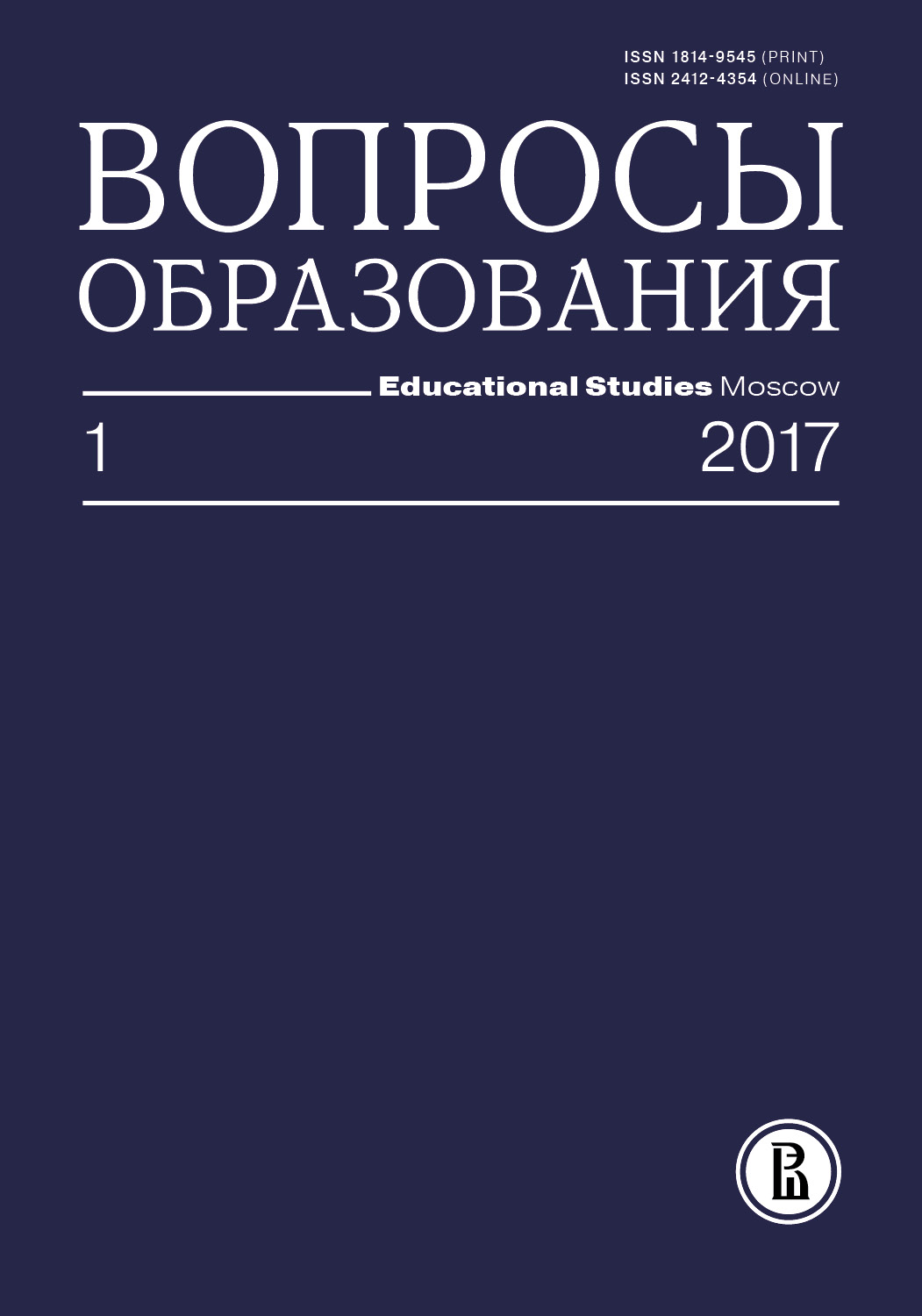Детерминанты ожидаемой отдачи от высшего образования в Москве
Аннотация
На основании данных мультипанельного лонгитюдного исследования «Траектории в образовании и профессии» изучаются факторы, влияющие на ожидаемую отдачу от высшего образования в абсолютном и относительном выражении. На основе данных опроса московских учащихся установлено, что успеваемость, оцениваемая по результатам ЕГЭ, является важным предиктором зарплатных ожиданий студентов. Кроме того, с ожидаемой отдачей от высшего образования положительно связана степень селективности вуза, в котором обучается студент. Учащиеся частных вузов ожидают, что будут получать более низкую заработную плату по сравнению со студентами государственных университетов. Социальный и культурный капитал семьи (образование родителей, количество книг дома) могут оказывать косвенное влияние на формирование зарплатных ожиданий через показатели успеваемости. Студенты из более обеспеченных семей рассчитывают на более высокую отдачу от образования по сравнению с учащимися из семей с низким доходом. Юноши ожидают более высокой отдачи от образования по сравнению с девушками. Работающие студенты надеются получать более высокую заработную плату по окончании вуза по сравнению с неработающими учащимися, однако прогнозируют более низкую отдачу от высшего образования в относительном выражении.








